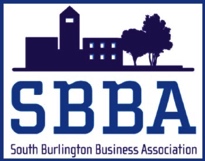SBBA Government Affairs Update
The City Council is planning several changes to South Burlington Land Development Regulations. Recent laws passed in Montpelier are responsible for some of the changes. Acts 47 and 181 introduce significant updates to housing bylaws, aiming to enhance housing availability and affordability. These Acts now permit duplexes under the same standards as single-unit buildings, particularly in areas served by municipal water and sewer systems. These areas are now mandated to allow buildings containing up to four dwelling units on the same lot size as single-unit buildings and must support a minimum density of five dwelling units per acre. Changes proposed in South Burlington regulations change the threshold for triggering affordable housing construction. Projects with 10 to 25 rental units must include 10% of rental units as affordable housing. For projects with more than ten total units, 10% of ownership units must be affordable.
The Green Mountain Transit (GMT) recently issued a draft service reduction plan that includes possible service cuts to South Burlington routes. This draft plan is just a first step, GMT must conduct a public hearing process to reduce service and expects to make changes based on public feedback and conversations with affected municipalities. Anyone who would like to comment or learn more, send an email to planning@ridegmt.com.
EV Alley
Several programs that offer Vermonters incentives to buy or lease electric vehicles are now closed. The New Plug-In Electric Vehicle (PEV), the Replace Your Ride, and the MileageSmart High-Efficiency Used Vehicle Program are no longer accepting applications as of Tuesday, October 8. Why? The program has officially run out of money. According to the Center for Sustainable Energy (CSE), these programs received more applications for EV incentives in September than in any other month. The volume of applications during the first week of October also increased, causing state officials to pull the plug on the program.
While the “carrots” to convince Vermonters to drive electric have run out, the “big stick” is around the corner. This is the Vermont Advanced Clean Car Regulation, which is modeled after the California zero-emission vehicle requirement. Starting with model year 2026, 35% of the vehicles that manufacturers are required to deliver to Vermont must have a plug. That requirement quickly scales up to 100% in 2035.
Clean Heat Considerations
The Clean Heat Standard is no longer a curiosity of the 2024 campaign. Propelled by a series of reports issued by the Public Utility Commission, it is now taking center stage with less than 90 days before a final draft rule is delivered to the legislature for consideration.
While a final price tag hasn’t been attached to the program, experts say it will cost about $10 billion over the next 25 years. Most of that money will come from propane and heating oil users. Once the legislature reviews the draft regulation, they can accept it, reject it, or amend it. Even though the PUC is required to produce a regulation for consideration, they aren’t exactly recommending that it become law. According to the PUC:
"The Clean Heat Standard, as currently conceived, requires substantial additional costs and regulatory complexity above the funding needed to accomplish Vermont’s greenhouse gas emission reduction goals.”
“The Clean Heat Standard would require establishing a credit marketplace managed by what is likely to be a costly credit platform” with “the potential for fraud and market manipulation.”
“Our work over the past year and a half on the Clean Heat Standard demonstrates that it does not make sense for Vermont, as a lone small state, to develop a clean heat credit market and the associated clean heat credit trading system to register, sell, transfer, and trade credits.”
What Comes Next
The next big climate policy idea in Vermont is a “Cap and Invest” program. This would place a declining cap on greenhouse gas emissions and reinvest the proceeds in energy efficiency and clean energy. This could be “economy-wide,” meaning it would add a fee to all fossil fuel consumed in Vermont for transportation and heating. Click here to review the slide deck from a recent public hearing.

